From coffee to soda to energy drinks, caffeine is a part of daily life for many of us. And while it is naturally occurring, overconsumption can cause health problems such as increased blood pressure, heart palpitations, anxiety, headaches, and insomnia. For this blog, we sat down with Susie Roberts, a Registered Dietitian, to discuss all things caffeine—why it’s such a big part of our lives, how much of it is in the food items many people enjoy regularly, and how much is too much. We’ll also talk about current trends and tips on how to boost your energy naturally so you can stop relying on caffeine to keep you energized throughout the day.
Q: Just this morning, I heard someone say “I’m not caffeinated enough for this day!” It really is such a big part of our daily lives. Why do you think that is?
A: It’s not surprising at all to hear that! About 90% of American adults consume caffeine daily. People are looking for ways to boost their energy and increase alertness and caffeine is readily available and socially acceptable.
Q: So, what exactly is caffeine, and how does it work?
A: Caffeine is a natural stimulant that affects the central nervous system. After consumption, it’s absorbed into the bloodstream and travels to the brain, where it blocks the effects of adenosine—a chemical that promotes sleep. This interference helps you feel more alert and awake.
Caffeine typically reaches your brain within 15 minutes, peaks in the bloodstream at 30 to 120 minutes, and has a half-life of 3 to 7 hours.
Q: Everyone knows that coffee and many soft drinks contain caffeine. But where else can it be found? If we are consuming these beverages and other items, how can we know the amount of caffeine we are getting?
A: Energy drinks have become very popular—especially among young adults. These contain not only caffeine, but may also have added sugars, so it’s a double whammy. Chocolate and many varieties of tea also contain caffeine. You may also want to check out any nutrition supplements or medications you are taking. And, many people may not realize it, but even decaf coffee contains a certain amount of caffeine.
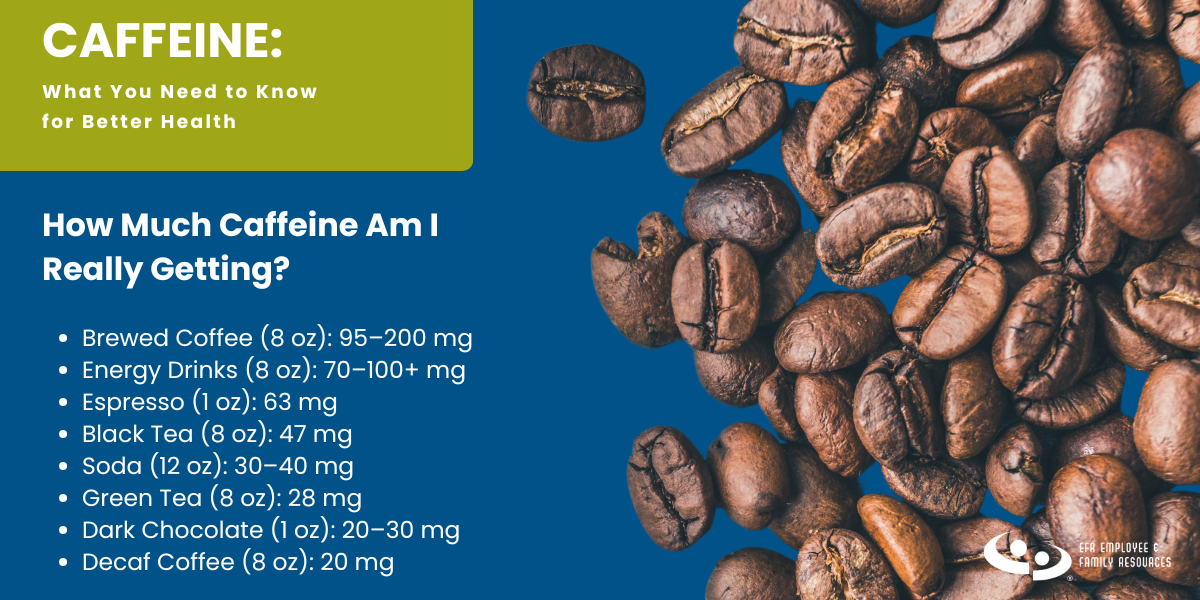
Q: How much is too much when it comes to caffeine?
A: For most healthy adults, the FDA says up to 400 mg per day is safe. That’s about 4 cups of coffee. But you need to remember, that’s based on an 8 oz cup. Many people order an extra-large coffee, so you need to be aware of exactly how much you are taking in. Each individual reacts differently to caffeine based on their genetics, medications, and sleep habits.
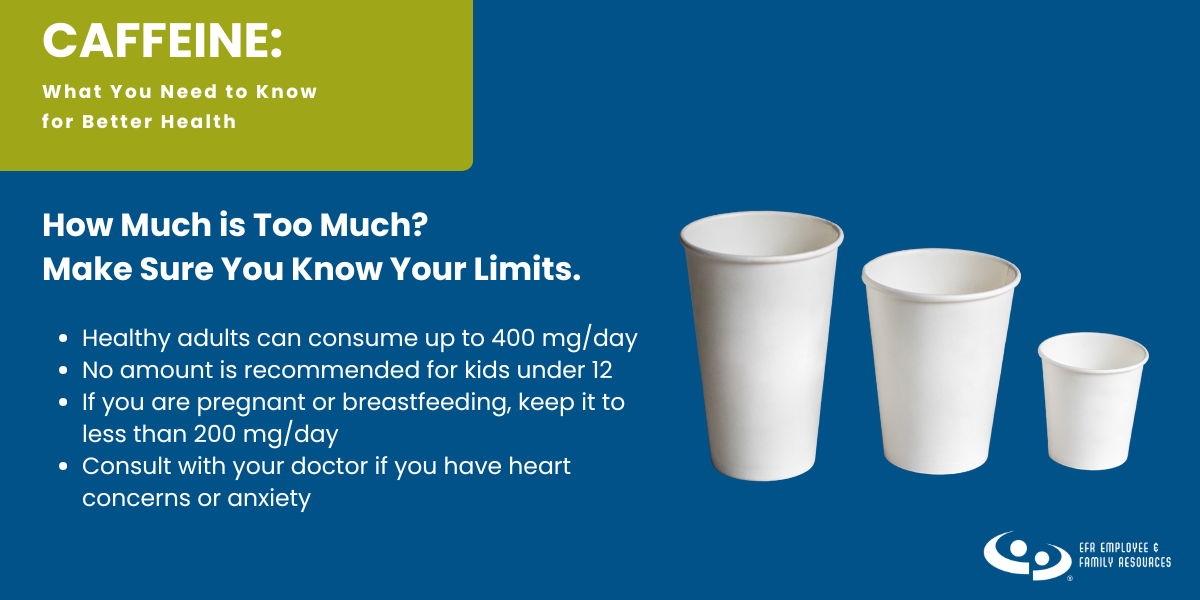
Q: What are the current trends in caffeine consumption?
A: As I mentioned before, energy drinks are increasing in popularity. They haven’t taken over coffee in the top spot, but Americans spent $19.2 billion on them in 2023 and that’s expected to rise to $33 billion by 2030. Coffee remains at the top, accounting for 69% of total caffeine intake, an increase of 15% in the last decade. And while the number of tea drinkers has dropped by 50%, those who drink it are consuming more.
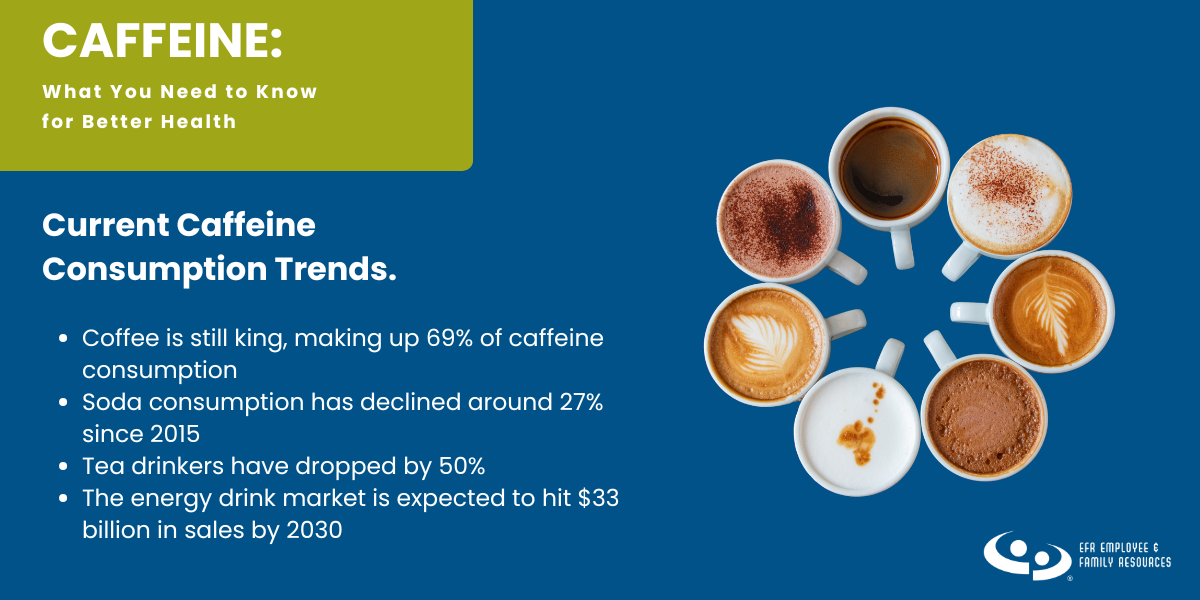
Q: How can I be more aware about the amount of caffeine I’m getting?
A: Mindful consumption of caffeine is being intentional about what, when, and how much you consume. Track your intake and pay attention to any potential unwanted side effects like jitters or difficulty getting to sleep or staying asleep. Are you sleeping 6-8 hours a night and waking refreshed? If not, consider a “hard stop” 10 hours before your bedtime. Remember, that cup of coffee you had at 8 am can potentially still be in your system at 5 pm, so it’s important to time it right. And finally, if you decide you want to reduce your caffeine consumption, do it slowly to minimize any withdrawal symptoms such as headaches.
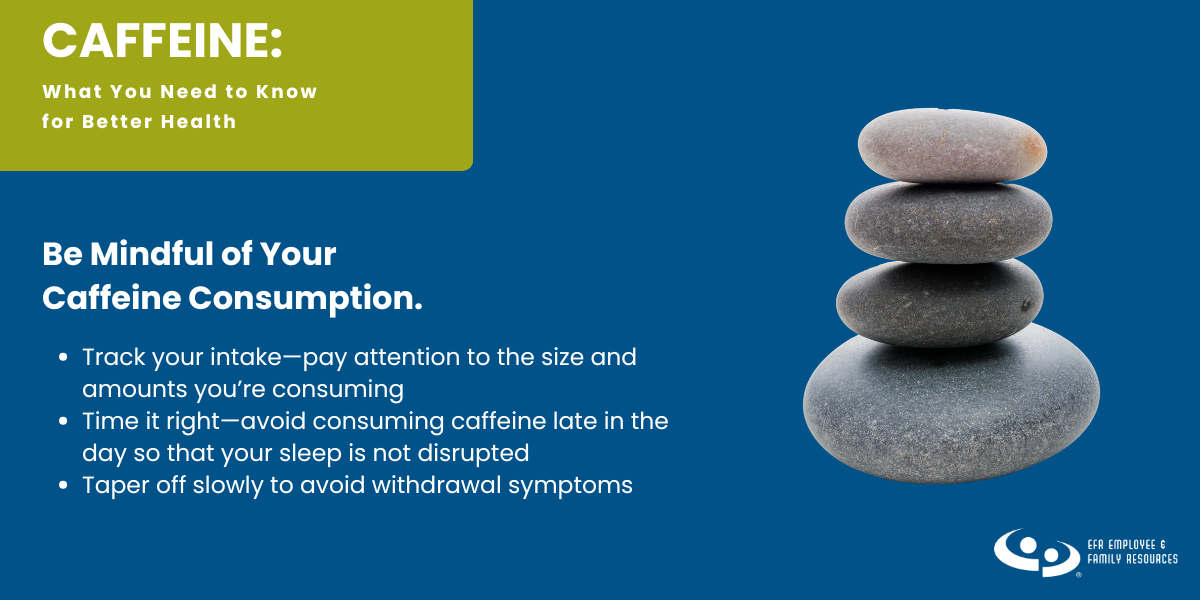
Q: Sometimes though, you need extra energy when you hit that afternoon slump. Can you suggest any alternative ways to get that boost and avoid turning to caffeine?
A: There are a few simple ways you can get that energy boost. First, make sure you are hydrated. Water supports joint health, oxygen delivery, temperature regulation, skin health, and more. You also want to move—even a short walk or stretch break can help. Make sure your meals are balanced with a protein and complex carbs. And most importantly, rest and recover. Sometimes rest—not more coffee—is what your body needs.
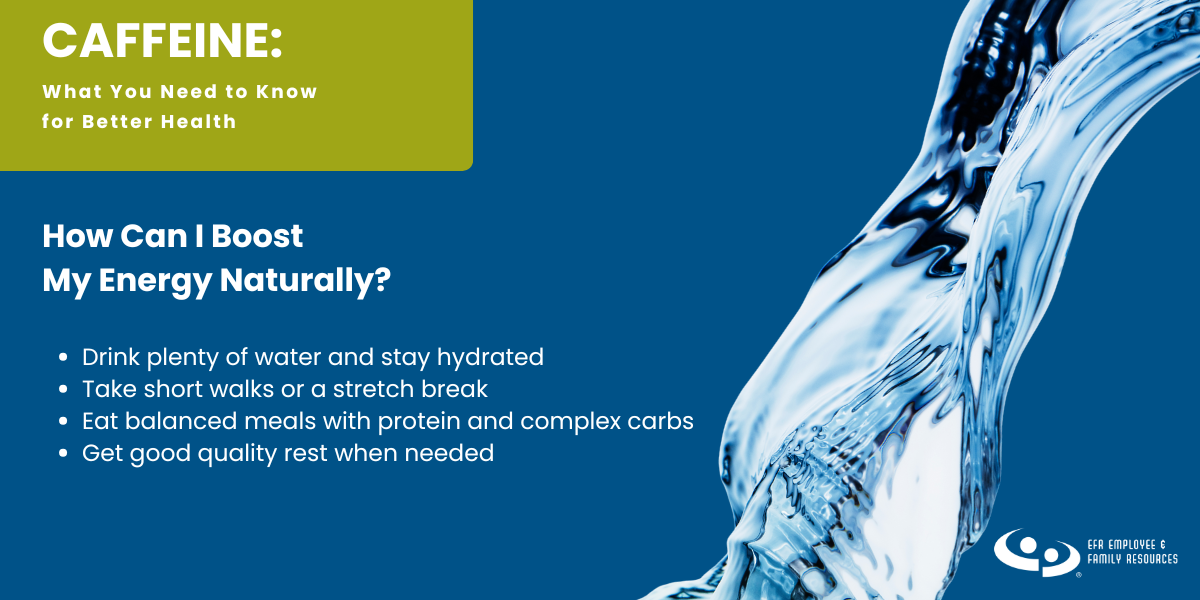
Q: So, what are your final thoughts on caffeine?
A: Caffeine can be part of a healthy lifestyle and may even offer some health benefits—but it’s all about balance and awareness. If you’re reaching for that third cup of coffee at 3 pm, pause and ask: Am I actually tired, hungry, or just in a habit? And then give one of the things we talked about a try, to get that energy boost naturally and see if that caffeine craving goes away.
This month’s Q&A is with Susie Roberts, RDN, LD. Susie is a registered dietitian nutritionist with a Bachelor of Science degree in Dietetics from Iowa State University. Her training has been focused on the science of food, nutrition, and its impact on human health. You can visit her website at DASH Coaching or contact her via email at [email protected].

